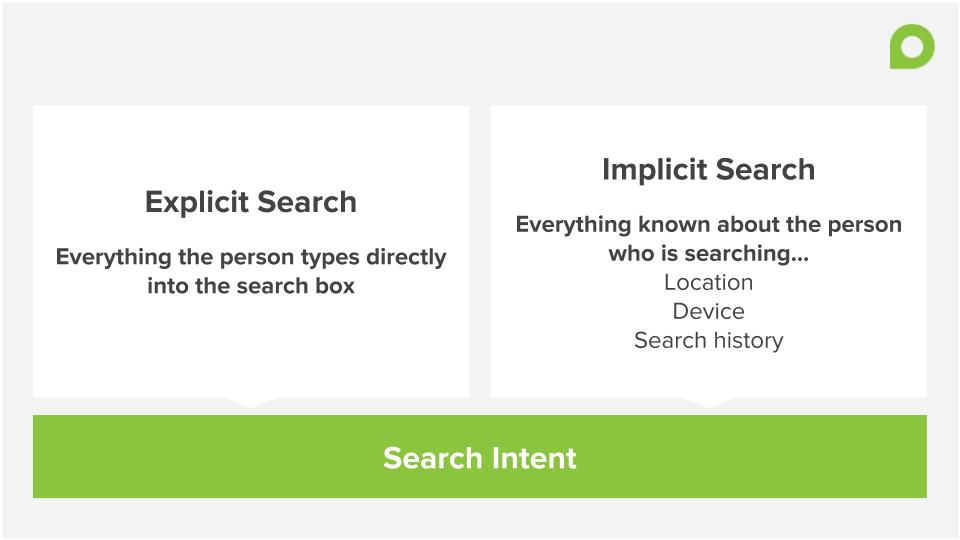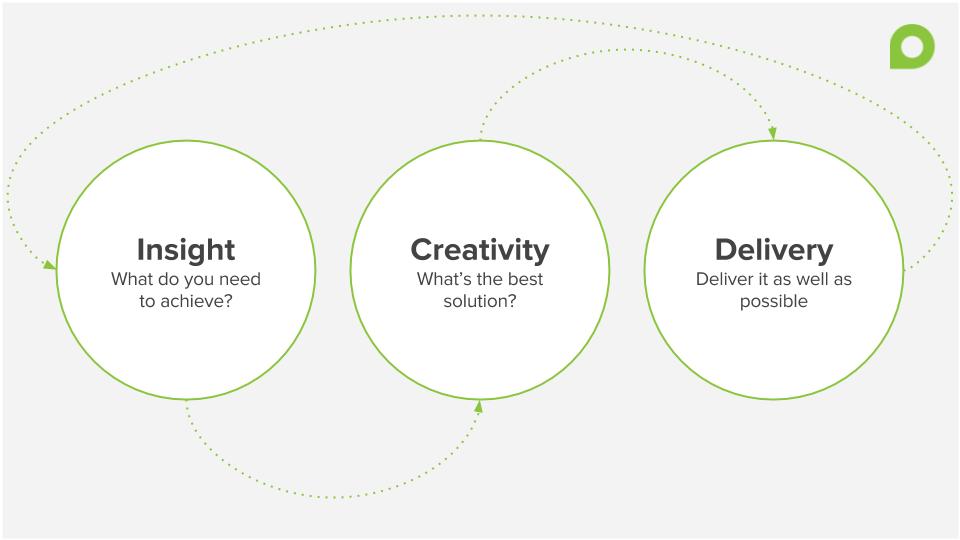Last week, Indulge attended the brilliant Business in Oxford 2017. It’s the biggest event of it’s type in the county and it was a fantastic day of welcoming people to our stand, filming interviews (more on that soon!) and making cocktails with The Cocktail Service!
At the event I was lucky enough to speak to the audience during the How to stay ahead as digital transforms your world session. I took the opportunity to introduce our approach to building and managing websites and SEO campaigns; we call it intelligent website management, here's what was covered...
Is digital transforming your world?

When he speaks to an audience, advertising supremo, Dave Trott often plays a video-clip of an ice-cream van playing Greensleeves.
Greensleeves was written over 300 years ago, he explains, and yet most people instantly recognise it. It’s well known, or to put it another way, it has gone viral.
So how does something go viral? Ask that question today and chances are the word ‘digital’ will feature somewhere in the answer.
But there was no digital 300 years ago - no Facebook, Twitter, Spotify, YouTube or anything else like it. Despite that, Greensleeves still found a way to go viral.
The point Dave Trott makes in his speech is this; it’s not the channel that makes something go viral, it’s the person at the other end.
That’s where I began my session at Business in Oxford 2017. In order to understand how digital is changing our world, we need to understand that one very important thing has never changed - the person we are trying to communicate with.
Digital represents a new, and often very exciting way to reach an audience, but we must not forget that the challenge remains, we need to communicate with real people and they are the ones who decide whether our efforts have been successful.
So what do website’s do really well?
A website is the best multi-format communication tool available to any business, organisation or person today.
You can use them to read, you can listen to sound, you can watch moving image and you can speak to other people. Websites work on computers, phones, ‘smart’ devices and anything else that has room for a web browser.
There’s no denying it, a website is a fantastic way to communicate. That’s why brands, organisations and people invest so much effort into making websites that are as clear and engaging as possible.
But in all of this excitement, it’s easy to forget the other function a website must serve - to get found. In a nutshell, a website that cannot be found is of no use to anyone.
This is the theme that drove the next part of my session at Business in Oxford. Designing a website is as much about planning how real people will arrive at your website as it is about designing the website itself.
How do search engines work?
Want to design a website that gets found? It helps to understand how a search engine does its job.
So in my session, I gave the audience a quick tour of the world of search.
1. The search engine is looking for two things...
Relevancy and quality. If your website is neither relevant (to a person’s search) or of sufficient quality then it won’t be found. Period.
2. A search engine crawls the web
It will hop from website to website, page by page finding new content. When it finds new content, it indexes it…
3. The search engine indexes the content
Think of the index like a filing cabinet - all of the content is filed away in the correct folder in the correct drawer so that it can be recalled later.
4. The person searches for something
There are two things that happen when a person searches for something. There is the ‘explicit search’ - this is everything the person types into the search box. Then there’s the ‘implicit search’ - that’s everything the search engine knows about a person (where they are, what device they use etc). It’s how the search engine delivers local restaurants rather than restaurants very far away.

5. The search engine matches the results
Knowing what you’ve searched for (explicit and implicit) the search engine goes back to its filing cabinet and finds everything that matches (that’s the relevancy part).
6. The search engine organises the results
This is where the search engine decides the order in which to present the relevant search results. How does it do that? It assesses quality; depth of content, security on website, multimedia content, speed etc etc etc…
7. The search engine presents the search results
Now the person sees the results. At this point, the search engine probably monitors what the person clicks on (or not) and uses machine learning to improve the process for next time.
How does this have an impact on website management?
The next part of my session looked to answer this question. To do so I used another example…
A typical business situation; your business is launching a new service, so you decide that you will launch a new page on your website about this service.
The process usually looks like this: you design the page, you build the page then you ‘do some SEO’ to get the page found.
Knowing what you now know about the search engine process, this approach looks dated. This is where intelligent website management enters.
Intelligent website management is a smarter process and consists of three stages:
1. Insight
You gather all of the information, research and objectives available to you. You’re launching a new service and would like your target market to know about it. Your objective is to get their attention and communicate with them. So you will need to carry out keyword research to understand the information your audience is searching for when they are looking for a service like yours. Crack that and you’ve got a brief.
2. Creativity
Now that you have your brief you need to find a solution that will achieve your objectives. At this stage you don’t need to think about how to deliver the solution, just what form the solution should take. Will it be a single service page, a series of pages or will it be an entirely new website in its own right?
3. Delivery
This is when you deliver the solution. You produce the design, you write the copy and you build the web pages. If you’ve done your ‘insight’ and ‘creativity’ correctly the solution you deliver will be primed to meet your objectives.

That’s intelligent website management
Intelligent website management is about building planning and thinking time into everything you do on your website. Any updates you make to your site should have an objective in mind. Having an objective means having a way to measure success, and when you have that, you can use a feedback loop to monitor success and factor that in the next time you use this process.
Intelligent website management finds the sweet spot between SEO and website design, because after all, what good is a nice looking website that can’t get found?
Here are the slides from the presentation at Business in Oxford 2017:
Ref - thank you to the following users on the Noun Project who supplied the graphics used throughout my presentation at Business in Oxford 2017:
-
Lute by Eric Shull
-
Smirk by Golden Roof
-
File by Logan
-
Monitor by Hopkins
- Smartphone by Awesome





